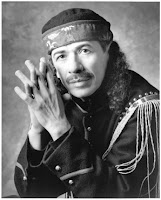 I have been attending a series of lectures on Music and the Brain at the Library of Congress in Washington. The subject matter has varied from Ellen Dissanayake's talk on the origins of music to Daniel Levtin's lecture and discussion on The World in Six Songs to the last of the talks on the mind of the artist by Michael Kubovy and Judith Shatin of UVA.
I have been attending a series of lectures on Music and the Brain at the Library of Congress in Washington. The subject matter has varied from Ellen Dissanayake's talk on the origins of music to Daniel Levtin's lecture and discussion on The World in Six Songs to the last of the talks on the mind of the artist by Michael Kubovy and Judith Shatin of UVA.I emerge from these lectures (sponsored by the Dana Foundation) feeling much like I feel when I go snorkeling - I am on the surface, but the real treasure is deeper in the water. I would like to get down into the depths and explore the subject. The more I read about it, the more I am persuaded that there is a power in music beyond just our enjoyment of it, that there is something in our wiring that is affected by music in a way that nothing else touches.
I first got interested in the subject because of my own amateur musicianship. I play guitar, bass, and sometimes keyboard (though not very well) and I have always loved it. My mother told me stories of my bouncing to the Beatles "I Wanna Hold Your Hand" in my crib.
So I knew I had an emotional attachment to music. I wanted to play it, I saw the popularity of musicians, especially good ones, and I wanted that, too. And I loved the feeling of "getting it right" of actually performing in front of people in a way that they appreciated.
I remember the electric feeling when my classmates leaped to their feet and began to cheer when my high school rock group started playing "Sweet Home Alabama." I felt like I had been plugged into a wall.
My classical guitar teacher told me that I had something that many professional musicians did not - I loved it. I did, I do, and I always will.
So learning more about this obsession intrigued me. I started reading Daniel Levitin's This is Your Brain on Music . If you have not read this book, it is excellent. It explores the way that music is processed in our brains and gives a good overview of the research into the subject. Then I started reading Music the Brain and Ecstasy by Robert Jourdain. It was a little bit harder read than Dan Levitin's book, primarily because it was a little more technical. I am currently reading Musicophilia by Oliver Sacks. It is fascinating, primarily because the stories are real-world testimonies of how Dr. Sacks has experienced the way music effects people.
I would also like to read more about music in religion and about trance music. I started exploring the phenomenon of brain entrainment using binaural beats and light flashes to alter brain wave frequency. But again, I have just flown over the iceberg, I haven't even come close to the tip of it.
As a Christian musician, I want to explore the implications of this research on church music, specifically on worship services. I have noticed many people go into a trance-like state when deeply involved in worship, and I have been involved in such a state myself at times. I have believed that we were all worshiping God, but that can be done without singing or music. So I want to delve into the role that music plays in worship. Does it evoke a response, or is it a tool that helps people respond to God? What about different instruments, their timbre, range, and forcefulness? And what of singing without music? Some traditions follow the church Fathers and don't allow musical instruments in church, so what about them?
I ask these questions because I think they need to be answered. Often times, I don't hear this kind of thinking. Dan Levitin said that singing together causes the release of Oxytocin, the so-called "trust" hormone that causes women to go into labor, and helps mothers bond with their babies. This is released in our bodies when we sing together! So how does that affect what Christians would call "unity" or "fellowship"?
Sadly, when I mention these issues to some on my current worship team, they look at me like "huh?" or like that's interesting now let's get back to playing music.
But I'm not crazy.
I have likened music to Dorothy's ruby slippers in the Wizard of Oz. Remember when Dorothy first gets the slippers and the wicked witch wants them? What does Glenda the good witch say? "Stay very tightly inside of them. Their magic must be very powerful, or she wouldn't want them so badly."
I think the same is true of music. People who dismiss Carlos Santana (pictured above in a photo from Santa Clara University) as "Cosmic Carlos" and laugh when I mention him should take note - Carlos has started a CHURCH. So maybe he's onto something. Maybe Christians ignore that something to their peril.
3 comments:
hello... hapi blogging... have a nice day! just visiting here....
Louis Vuitton Insolite Wallet PM
This unaccustomed Louis Vuitton Insolite Wallet PM is a destined nod to the popularity of Louis Vuitton’s unchanged leather wallets.
Two Louis Vuitton Flapship Within a Day
Yesterday is the festival of Louis Vuitton and Shanghai even opened Two Louis Vuitton Flapship Within a Day, so interesting?
Louis Vuitton Speedy Againest Neverfull.
Post a Comment